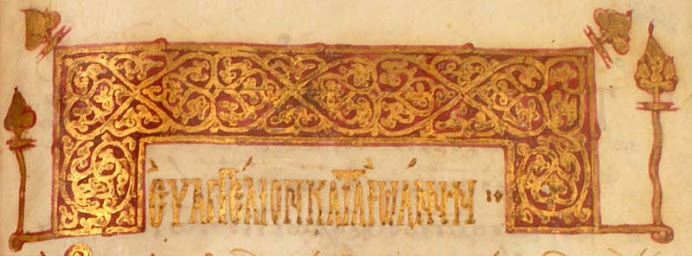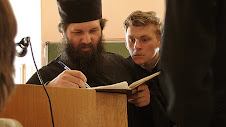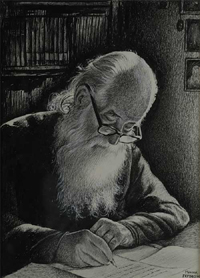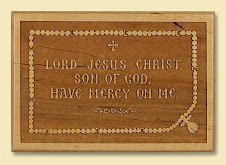 Today we celebrate the memory of St John Cassian the Roman, another of the great monastic fathers whose work serves as a testimony to the wisdom of the Desert Fathers. I here reproduce chapter two from Book X of The Institutes, entitled "The Spirit of Acedia," which Cassian defines as "a wearied or anxious heart" that is "akin to sadness":
Today we celebrate the memory of St John Cassian the Roman, another of the great monastic fathers whose work serves as a testimony to the wisdom of the Desert Fathers. I here reproduce chapter two from Book X of The Institutes, entitled "The Spirit of Acedia," which Cassian defines as "a wearied or anxious heart" that is "akin to sadness":Once this has seized possession of a wretched mind it makes a person horrified at where he is, disgusted with his cell, and also disdainful and contemptuous of the brothers who live with him or at a slight distance, as being careless and unspiritual. Likewise it renders him slothful and immobile in the face of all the work do be done within the walls of his dwelling: It does not allow him to stay still in his cell or to devote any effort to reading. He groans quite frequently that spending such a long time there is of no profit to him and that he will possess no spiritual fruit for as long as he is attached to that group of people. He complains and sighs, lamenting that he is bereft and void of all spiritual gain in that place inasmuch as, even though he is capable of directing others and of being useful to many, he is edifying no one and being of no help to anyone through his instruction and teaching.Change monastery to house, brotherhood to family, and cell to room or study, and most would find a perfect fit. I particularly like the monk's fear that "he is edifying no one and being of no help to anyone through his instruction and teaching." Too bad the monks back then didn't have the resources to, say, start a blog.
He makes a great deal of far-off and distant monasteries, describing such places as more suited to progress and more conducive to salvation, and also depicting the fellowship of the brotherhood there as pleasant and of an utterly spiritual cast. Everything that lies at hand, on the contrary, is harsh, and not only is there nothing edifying among the brothers who dwell there but in fact there are not even any of the necessities of life to be obtained there without a huge effort. Thereupon he says that he cannot be saved if he remains in that place. He must leave his cell and get away from it as quickly as he can, for he will perish if he stays in it any longer. Then the fifth and sixth houses arouse such bodily listlessness and such a yearning for food that he feels as worn out as if he had been exhausted by a long journey and very heavy labor or as if he had put off eating for the sake of a two- or three-day fast. Next he glances around anxiously here and there and sighs that none of the brothers is coming to see him. Constantly in and out of his cell, he looks at the sun as if it were too slow in setting. So filled is he with a kind of irrational confusion of mind, like a foul mist, and so disengaged and blank has he become with respect to any spiritual activity that he thinks that no other remedy for such an attack can be found than the visit of a brother or the solace of sleep alone. With that the same malady suggests that he should dutifully pay his respects to the brothers and visit the sick, whether at a slight distance or further away. It also prescribes certain pious and religious tasks: Those relatives male and female should be looked after, and he should hasten to bring his greetings to them more often; it would be a great and pious work to make frequent visits to that religious woman who is vowed to God and who, in particular, is totally deprived of her relatives" support, and a very holy think to bring whatever might be necessary to one who was abandoned and disdained by her own relatives. On such things it behooves him to expend his pious efforts rather than to remain, barren and having made no progress, in his cell.
Translation taken from Boniface Ramsey's excellent newish edition.
Illustration: A 12th-century Latin manuscript of St John Cassian's work.









No comments:
Post a Comment